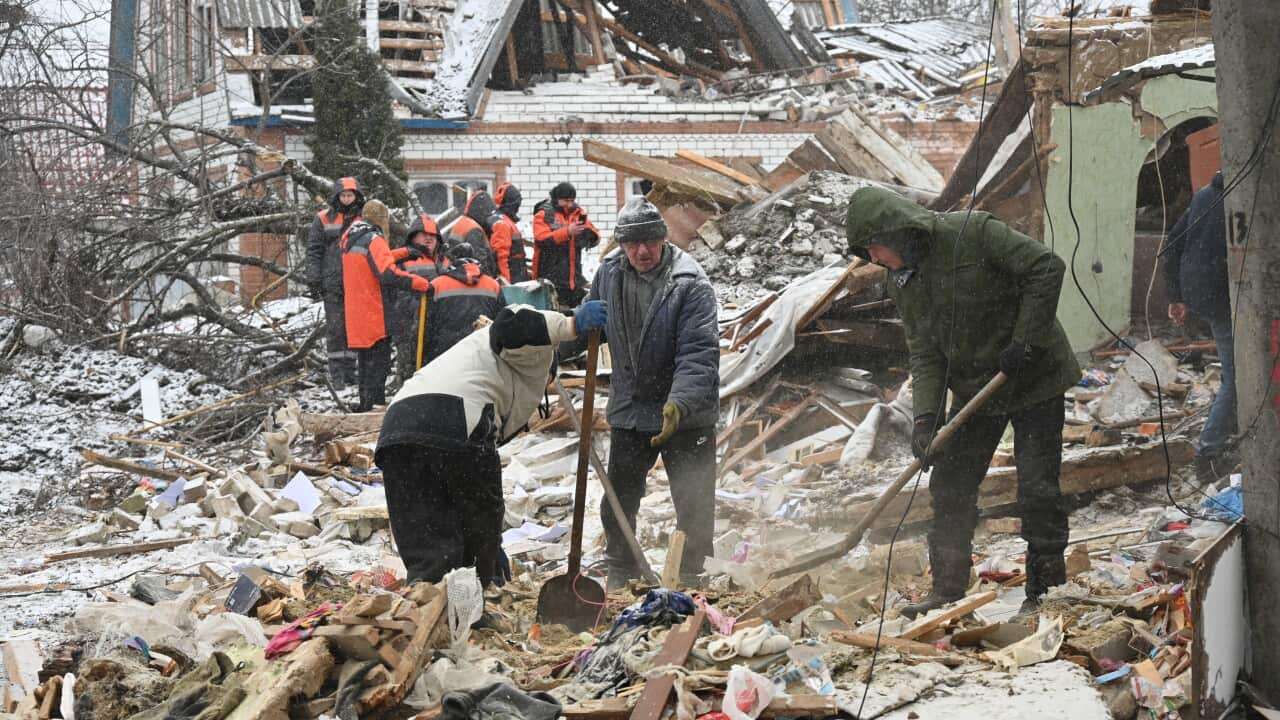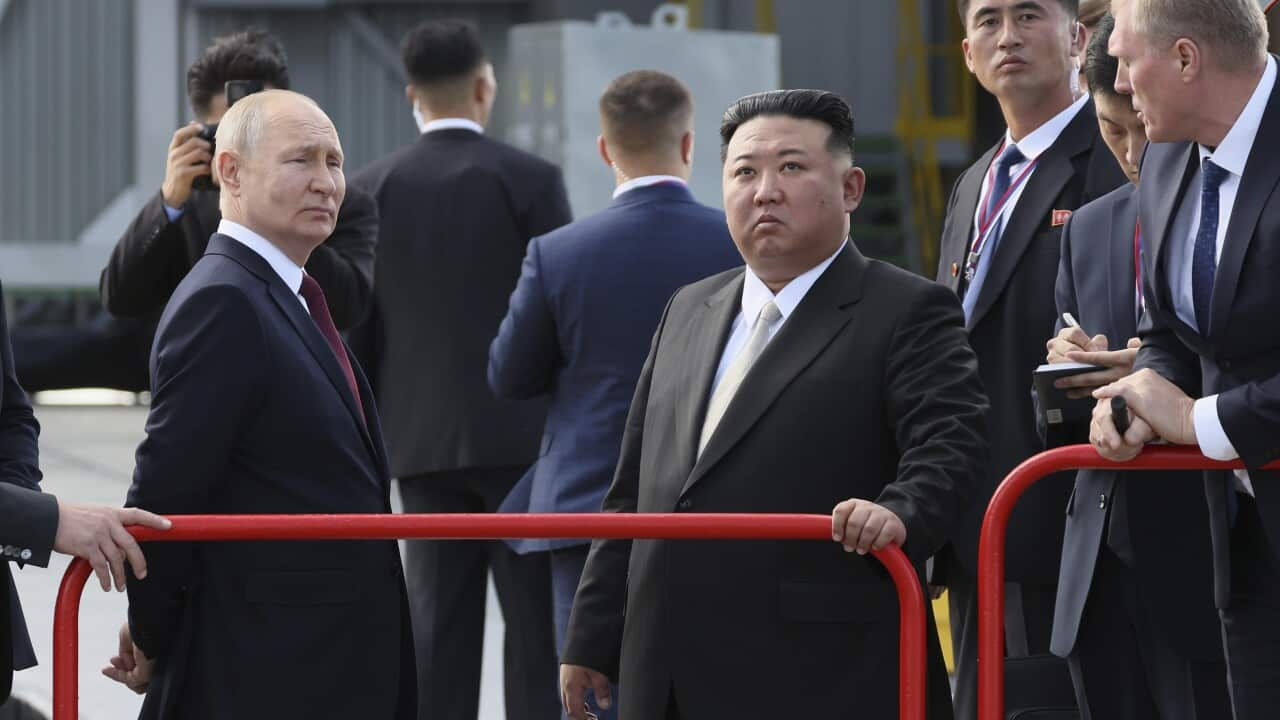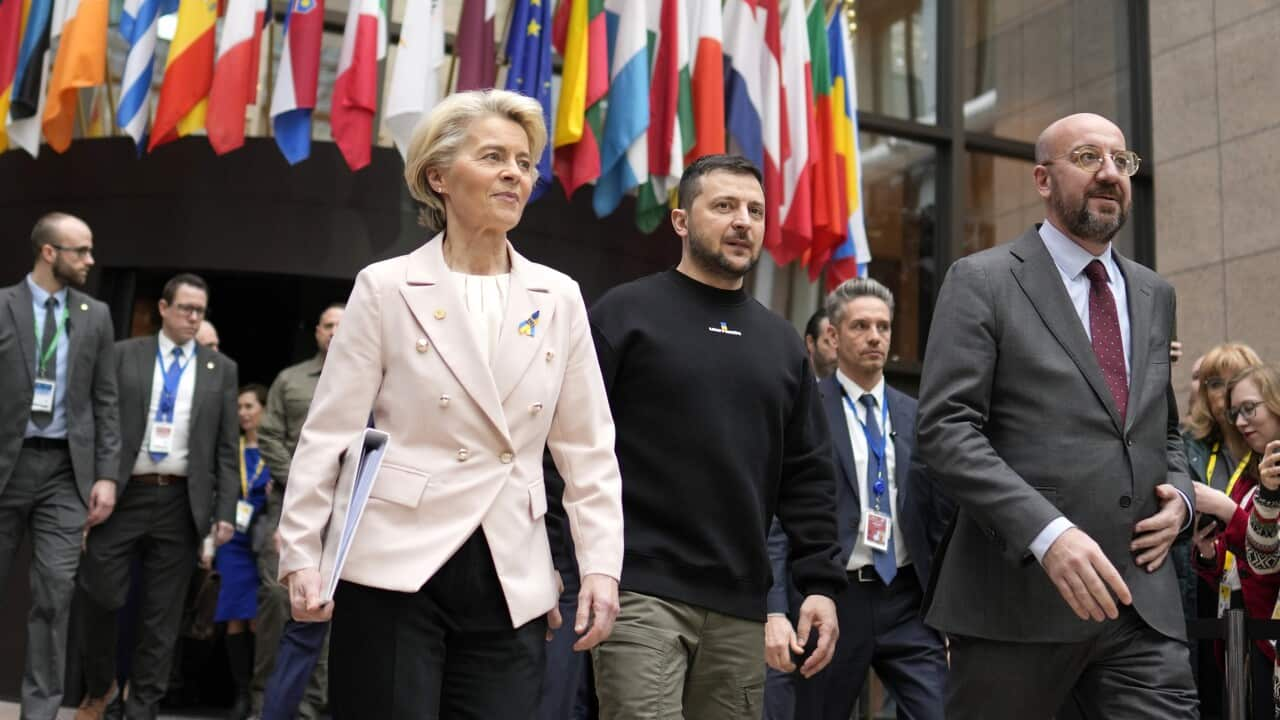Key Points
- President Volodymyr Zelenskyy tours Baltic countries to shore up support for Ukraine’s war effort.
- Zelenskyy seeks to stop war fatigue, secure more aid, and discuss NATO and EU bids.
- Italy’s defence minister calls for diplomacy to pave the way for peace in Ukraine.
President Volodymyr Zelenskyy says Ukraine is under no pressure from allies to stop fighting Russia as he began a tour of Baltic countries intended to shore up support for the war effort.
On his trip to Lithuania, Latvia and Estonia, Zelenskyy hopes to stop war fatigue among Ukraine's allies, secure more financial and military aid and discuss his country's bids to join the NATO military alliance and the European Union.
But shortly before the Ukrainian leader started talks with Lithuanian President Gitanas Nauseda in Vilnius, Italy's defence minister said in Rome that the time had come for diplomacy to pave the way for peace.

Lithuania's President Gitanas Nauseda (right) and Ukraine's President Volodymyr Zelenskyy held talks on Wednesday. Source: AFP / Petras Malukas
"There are various voices in the media, I have read them all," he told a joint press conference with Nauseda.
"But I think that our partners are not yet officially ready to give us such signals. At least I haven't heard them personally."
The three Baltic countries are among Ukraine's staunchest supporters in the EU and NATO and provided it with military aid even in the weeks leading up to Russia's full-scale invasion on 24 February, 2022.
All three, as well as Moldova, would be next in Russia's sights if it ends up victorious in Ukraine, Zelenskyy said.
With the prospects of a protracted war growing after a Ukrainian counteroffensive last year failed to provide the breakthrough it had hoped for, Ukraine has been appealing to its allies for more financial and military assistance.

Ukraine's President Volodymyr Zelenskyy holds a speech to Lithuanians outside the Presidential Palace in Vilnius, Lithuania, on Wednesday. Source: Getty / Petras Malukas
"That uncertainty of the partners' financial and military support to Ukraine only builds up the bravery to the Russian Federation. Therefore we should not prolong this process any more," Zelenskyy told reporters.
He said Ukraine faced an acute lack of modern air defence systems against Russian missile and drone strikes.
Italian Defence Minister Guido Crosetto told Italy's parliament the Ukrainian counteroffensive had not produced the desired result, and the military situation had to be viewed with realism.
"From this perspective... it would seem that the time has come for incisive diplomacy, alongside military support, because there are a number of important signals coming from both sides," Crosetto said.
Russia is progressively showing willingness to negotiate and safeguard its economy while Ukraine's stance appears less uncompromising than before, he said.
"All of this must be taken into consideration on the path towards negotiations to stop the conflict and the subsequent process of normalisation of relations, not only of Russia with Ukraine, but also with Western countries," he said.
Russia has said it is ready for peace talks if Ukraine takes account of "new realities," suggesting an acknowledgement that Russia controls about 17.5 per cent of Ukrainian territory.
Zelenskyy has rejected any notion that Russia is interested in talks under President Vladimir Putin, and has suggested Russia would agree to a pause in fighting only if it needed a break to replenish its army.
Addressing a crowd of several thousand in central Vilnius, some of them waving Ukrainian or Lithuanian flags, Zelenskyy said defiantly: "There will never be 'the day after Ukraine'. There will the day after the war and there will be the day after Putin".











